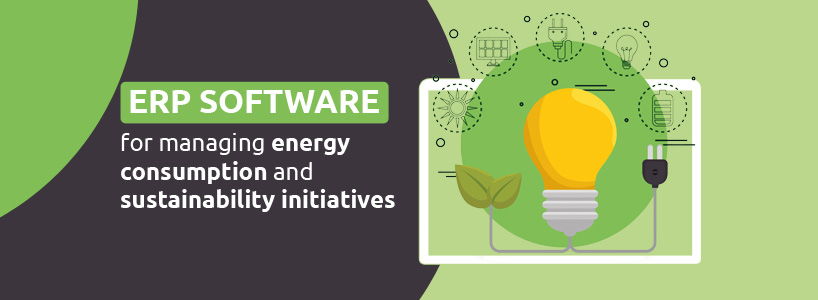Enterprise Resource Planning (Edu-Automate) software has evolved beyond traditional business management. Today, it's a potent tool for driving sustainability initiatives and optimizing energy consumption. By integrating environmental factors into core operations, ERP systems are empowering businesses to reduce their carbon footprint, enhance efficiency, and contribute to a greener future.
Unleashing the Power of Data
At the heart of successful energy management lies data. ERP software excels at collecting, analyzing, and transforming vast amounts of data into actionable insights. By tracking energy consumption patterns, identifying consumption hotspots, and benchmarking performance against industry standards, businesses can pinpoint areas for improvement. This data-driven approach enables informed decision-making, leading to targeted energy efficiency measures.
Embracing Sustainability Goals
ERP systems can be configured to align with specific sustainability objectives. Whether it's reducing greenhouse gas emissions, minimizing waste, or sourcing sustainable materials, ERP software provides the framework to track progress, measure impact, and report on achievements. With features like carbon footprint calculators and supply chain traceability, businesses can demonstrate their commitment to environmental responsibility.
Optimizing Resource Utilization
Beyond energy efficiency, ERP software (Edu-Automate) contributes to overall resource optimization. By managing inventory levels effectively, reducing waste, and streamlining production processes, businesses can minimize their environmental impact. Additionally, ERP systems can facilitate the adoption of renewable energy sources by integrating data on solar or wind power generation into the overall energy management strategy.
Driving Innovation and Collaboration
ERP software fosters a culture of innovation and collaboration around sustainability. By providing a centralized platform for data sharing and analysis, it encourages cross-functional teams to work together on energy-saving projects. Moreover, ERP systems can support the development of new sustainable products and services by integrating environmental considerations into the product lifecycle management process.
Key Benefits of ERP for Energy Management and Sustainability
- Cost Reduction: By optimizing energy consumption and identifying inefficiencies, businesses can achieve significant cost savings.
- Risk Mitigation: ERP software helps manage environmental risks and ensures compliance with sustainability regulations.
- Competitive Advantage: Demonstrating a commitment to sustainability can enhance brand reputation and attract environmentally conscious customers.
- Improved Decision Making: Data-driven insights empower businesses to make informed decisions about energy and resource management.
In conclusion, ERP software is a powerful ally in the pursuit of a sustainable future. By harnessing the potential of data, aligning with sustainability goals, optimizing resource utilization, and fostering innovation, businesses can leverage ERP systems to create a more environmentally responsible and profitable organization.
